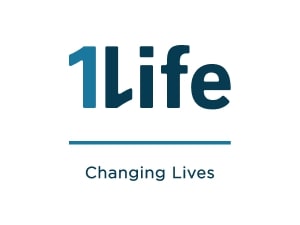 Are you debt-savvy and ready?A sentiment released today by Laurence Hillman, MD at 1Life, iterates that the key to South African consumer’s financial survival in a time when interest rate changes are expected, is the ability to reduce their debt and minimise ‘want-based’ spending.
Are you debt-savvy and ready?A sentiment released today by Laurence Hillman, MD at 1Life, iterates that the key to South African consumer’s financial survival in a time when interest rate changes are expected, is the ability to reduce their debt and minimise ‘want-based’ spending.
In January this year, the interest rate was increased for the first time in six years and according to market commentators, inflation is expected to increase even more and remain above 6% for the rest of the year. In addition, the prime interest rate is expected to peak at about 11% by 20151.
“Consumers often see these increases in isolation to their own survival, yet it has a fundamental impact on their ability to meet financial obligations which can create significant levels of stress and place their financial stability under strain,” says Hillman.
“In fact, not dealing with increased costs of living, or managing debt properly will not only impact the individual, but also their larger community. For example, they may need to start drawing from family’s and friend’s resources and place current investments such as home maintenance on the backburner – having profound long lasting effects later down the line.”
“Consumers therefore need to start looking at ways to reduce their debts as well as focus on delaying instant gratification - in doing so they will mitigate the implications when the interest rate levels, or decreases, again.”
“Household debt in South Africa currently stands at approximately 75.5%2 of disposable income and, with increasing interest rates, these debt obligations will start costing consumers more than they planned for. If not managed effectively before the inevitable happens, these debt statistics are likely to rise – leaving very little room for recovery for those consumers who are already under financial stress.”
Consumers should look at the following ways in which to manage their budgets and reduce their debts - with the end goal in mind of sound financial stability when interest rates are at their highest.
- Managing budgets: Work out what a 200 point basis rate increase will mean for their current debt obligations and adjust their budgets to ensure they are able to accommodate this increase.
For example, if a consumer currently pays around R 8 000 on their bond, a 2% increase in the interest rate will move this repayment up to over R9 000 a month – that’s R1 000 plus that they didn’t budget for3.
Therefore, consumers should manage these types of possible changes by paying off retail accounts and closing them to avoid the temptation during tougher times to max these out, or, putting a little more money towards current debt to reduce the interest rate on it and get closer to paying it off. Of course, they can also look at getting rid of those contracts they never use (provided there are no penalty charges) and only buying things that are essential, for example; waiting to buy that new TV when the old one works just fine. Setting and sticking to budgets will also go a long way to staying on track. - Reducing debts: Ensuring they understand what debts they have is most important so that they have a clear view of what they are dealing with. Deduct expenses from income and if there isn’t enough left to cover debts, adjust the budget by cutting spend - as per the above. With any money left over make sure the debts are paid starting with those that have the highest interest. Then, start negotiations with credit providers to consolidate debt and reduce interest rates, while sticking to monthly debt obligations until they are paid off.
- Saving: Consumers should look after their savings and while they can, keep ‘paying themselves first’. They should save for that rainy day, that unexpected expense such as an insurance excess or a sudden medical bill, so that when it comes they have a buffer fund to help them out should they need it.
- Debt assistance: For those consumers already struggling, it is now that they should seek debt counselling support - which can significantly help them reduce their financial obligations and help them weather the storm when these obligations become larger than what was accounted for.
“The interest rate changes will wait for no one - consumers need to start now – because it is expected that in just a year - at an 11% prime lending rate, taking a look at one’s finances will be too late. Seek advice and don’t be scared to take the first step to a sound financial future,” concludes Hillman.
Reference/s1http://www.fin24.com/
2 http://www.sacommercialpropnews.co.za/
3 http://www.ooba.co.za/